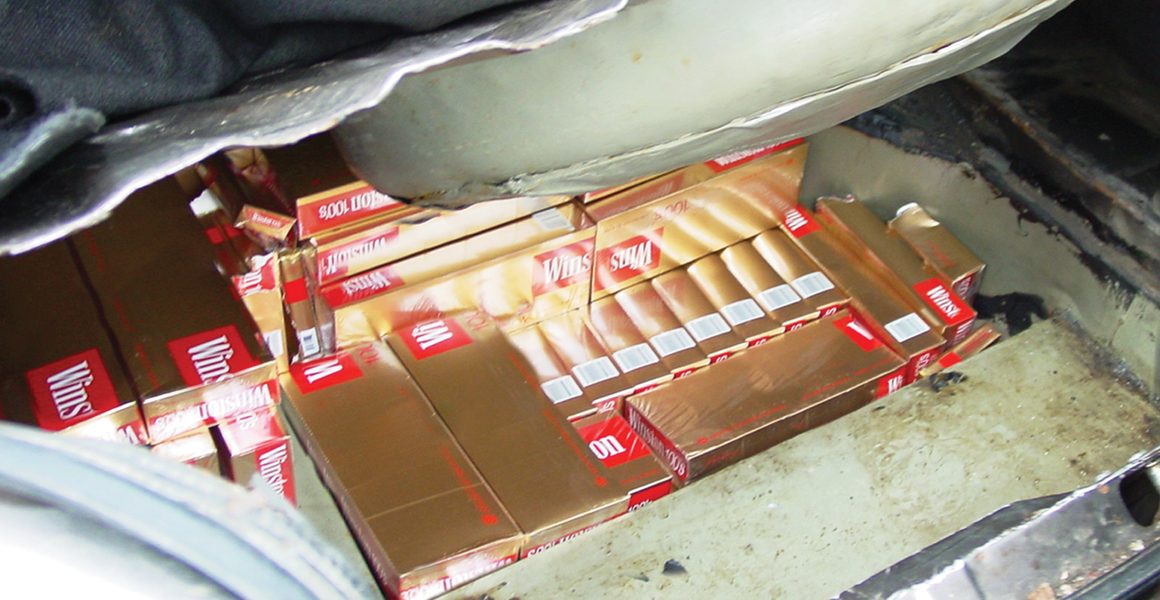In the same week the level of counterfeit cigarettes reached a five-year high, experts have warned law enforcement alone isn’t enough to reduce the illicit trade.
Last month, KPMG published its annual report examining the consumption of illegal cigarettes in the UK. Figures revealed that illegal cigarettes now make up 17% of all consumption, rising by 9% on 2019 – an increase of 230 million illicit packs.
Although cigarettes brought into the country legally by consumers declined by 66% over the past year, due to border closures and travel disruption from the coronavirus pandemic, organised criminals managed to continue operations using illegal factories.
Speaking at The Global Tobacco & Nicotine Forum last month, JTI’s global anti-illicit trade operations director, Ian Monteith, confirmed factories were being opened in countries that previously had none.
Scottish retailers warned about illicit nicotine vaping products on the market
Data produced by the manufacturer confirmed this included Denmark, Lithuania and Romania, with the Netherlands going from having one to five within a year.
“Criminals couldn’t use their usual supply chains, so they moved into Europe to operate factories,” he said. “They are now targeting the financial gains of Europe and taking advantage of the borders.”
KPMG’s report also confirmed £2.2bn in tax revenue is being lost due to illicit cigarettes, up £35.6m from 2019.
At the same event, consultant Alvarez & Marsal’s senior advisor, Lawrence Hutter, described taxation as the “principal driver of affordability with illicit products”.
“A rise in taxes creates a desire for consumers to seek cheaper products,” he said. “Countries that see a sudden increase in taxation also see real spikes in non-duty-paid product consumption.”
Sale of illicit tobacco in shops being used as cover-up for modern slavery
Hutter used Germany as an example, which experienced a jump from 7% to 20% in consumption shortly after a dramatic tax rise. However, he stressed increases need to be matched with stronger law enforcement in a bid to control the issue.
“It’s about making sure affordability, enforcement and policy is aligned and recognising the state of neighbouring countries and the escalation of cross-border shipments,” said Hutter.
Underground economy specialist Sergio Miranda referenced a programme the Quebec police force implemented, which so far has successfully cut the amount of contraband in the region from 40% to 12%.
“Our government realised that they didn’t want the sale of illicit tobacco to be a victimless crime anymore, so they created extra funding to deal with it,” he said.
Officers continue to carry out their usual policing responsibilities in the day, but after hours they are redistributed to work on specific tobacco investigations.
Geek bar warns retailers of illicit vape product seizures
“I’d rather have 10 investigators with excellent intelligence than have a thousand officers who go out and follow up smuggling themselves,” he said.
“The extra funding doesn’t affect the main work of the force. For us, it has created extra jobs and allowed us to ensure cases are being followed up in court.”
Miranda added police partnership needs to be encouraged. “We can’t work on this problem by ourselves, we need to speak to one another,” he said. “Law enforcement alone isn’t going to eradicate this, rather it should be the final step in the process.”
When asked what strategies need to be implemented to help convenience store owners hit by the illicit trade, Monteith said: “It’s going to require legislation that has consequences and government supporting law enforcement.”





Comments
This article doesn't have any comments yet, be the first!